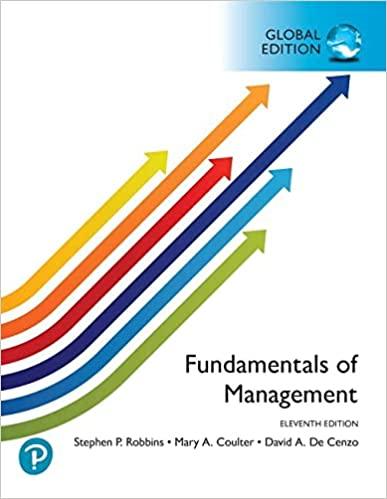How do you successfully manage a growing international company? CEO Christian Chabot of Seattlebased Tableau believes that
Question:
How do you successfully manage a growing international company? CEO Christian Chabot of Seattlebased Tableau believes that being there physically is an important piece in the often-complex puzzle of international management.
International growth is nothing new for Tableau. As a leading provider of analytics and business intelligence software solutions, the company, which was founded in 2004, has more than 35,000 clients in over a dozen countries. Tableau provides software tools and interactive dashboards that allow users to generate useful business insights through the analysis and visualization of data. The company is on the cutting edge of data-imaging solutions for end-users with products such as Elastic, which allows users to create graphics from spreadsheets.
Despite tough competition in the market for business intelligence from software giants such as Microsoft, Tableau has continued to maintain its share of the marketplace, and the company’s value continues to grow, with a 64 percent increase in revenue over last year. Much of the company’s growth is attributed to the company’s international expansion, with an 86 percent increase in revenue last year from international markets, which now account for a quarter of the company’s total revenues.
While more than half of their current 2,800 employees work in the company’s Seattle headquarters, Tableau has 14 locations around the world in places such as Shanghai, Singapore, Sydney, and London. About 400 of the new employees will be hired beyond their Seattle headquarters, and Tableau’s expansion will include opening new international offices.
International growth creates many challenges for companies, particularly when they open and staff branch locations in different countries. Cultural differences, time differences, and just the geographic distance can make it difficult to sustain the same management practices at home and abroad.
How has Chabot managed the quick growth of this international company? One strategy was to spend almost a year abroad working in the company’s London office. His time at that location helped grow regional sales but also provided the CEO with valuable insights to support further international expansion.
Chabot reported that the time he spent in London highlighted the importance of managing culture and people.
Prior to the trip, he did not have a true understanding of the challenges of international employees working for a U.S.-
based company. For instance, he found that many working in international branch offices did not feel like they were taken seriously by those at the home office. Geographically remote workers can feel disconnected from a global company, particularly when they report to management they have never met in person at their headquarters.
Chabot’s time working in London was valuable for employees in all of the company’s locations, as his actions sent the message that he felt that employees outside the headquarters were important. Although he spent time only in London, the fact that he spent a year away from the home office emphasized his belief that locations beyond Seattle are important for the company’s success.
Chabot’s experience is having such a profound impact on the company’s success that Tableau is now encouraging other executives to spend time at international offices.
Discussion Questions
1. Tableau staffs its international offices primarily with host country nationals. What are the advantages and disadvantages of this staffing strategy?
2. Do you agree with Chabot that the company will benefit if more executives spend time in international offices? Why or why not?
3. As Tableau executives get ready to spend time in the company’s international offices, how can they prepare for the cultural differences they will encounter?
4. What are some of the challenges Tableau will face as it hires 1,000 new employees in one year?
Step by Step Answer:

Fundamentals Of Management
ISBN: 9781292307329
11th Global Edition
Authors: Stephen P. Robbins, Mary A. Coulter, David A. De Cenzo





